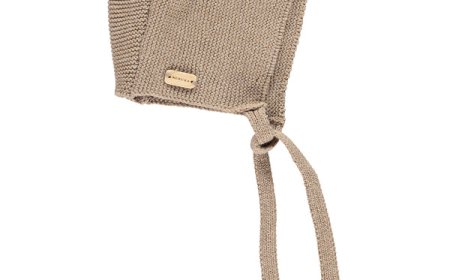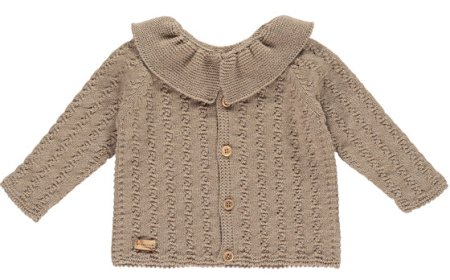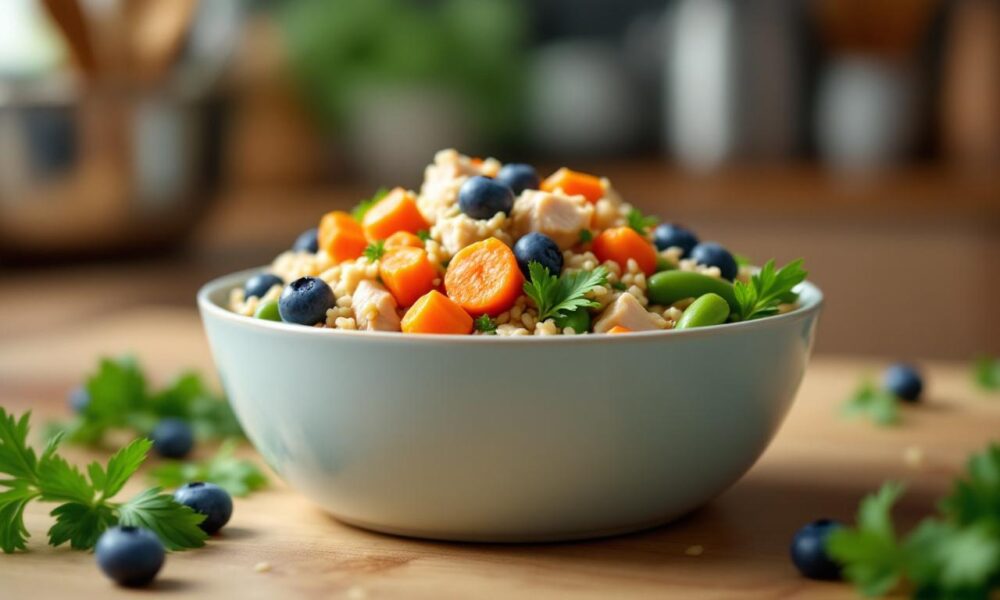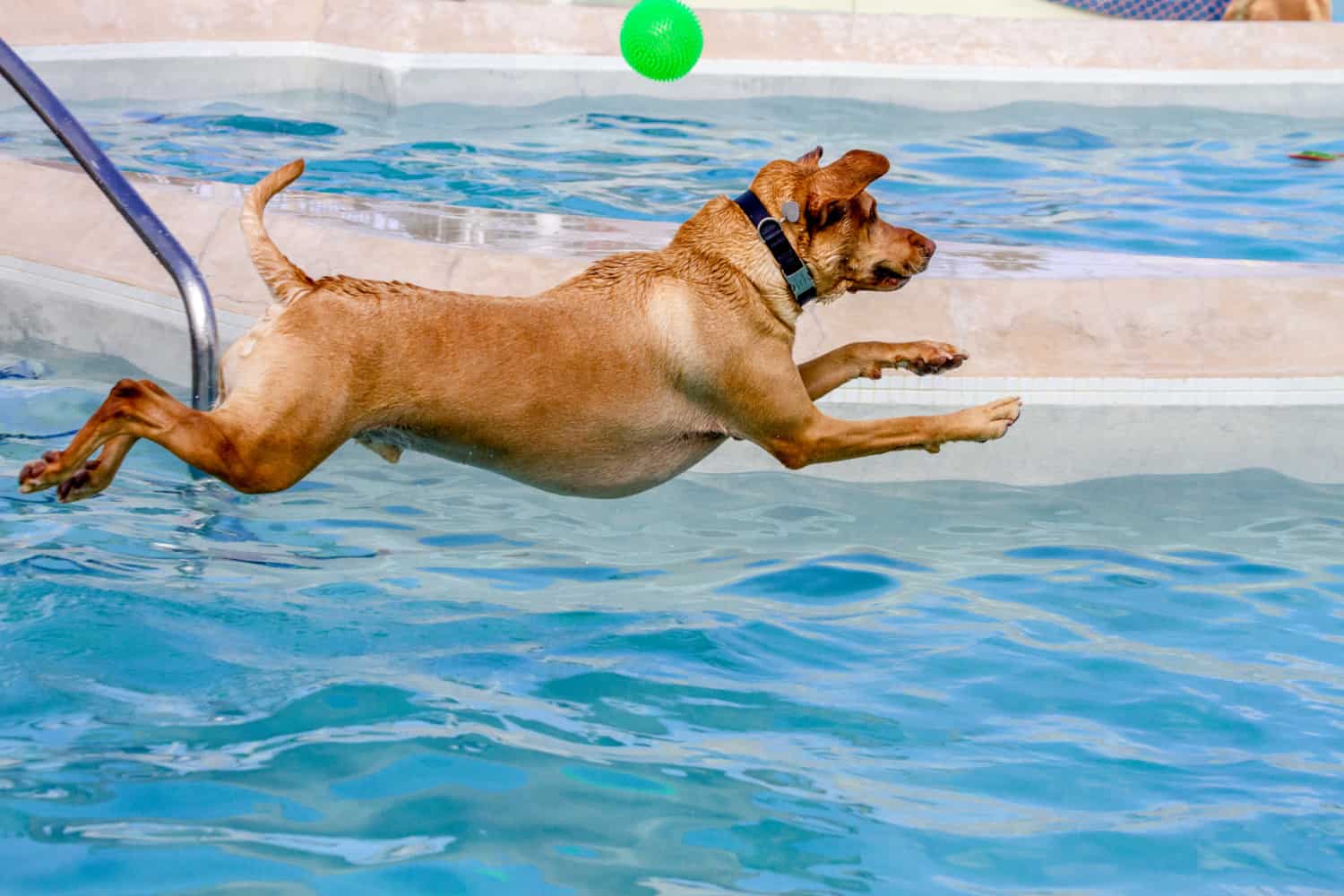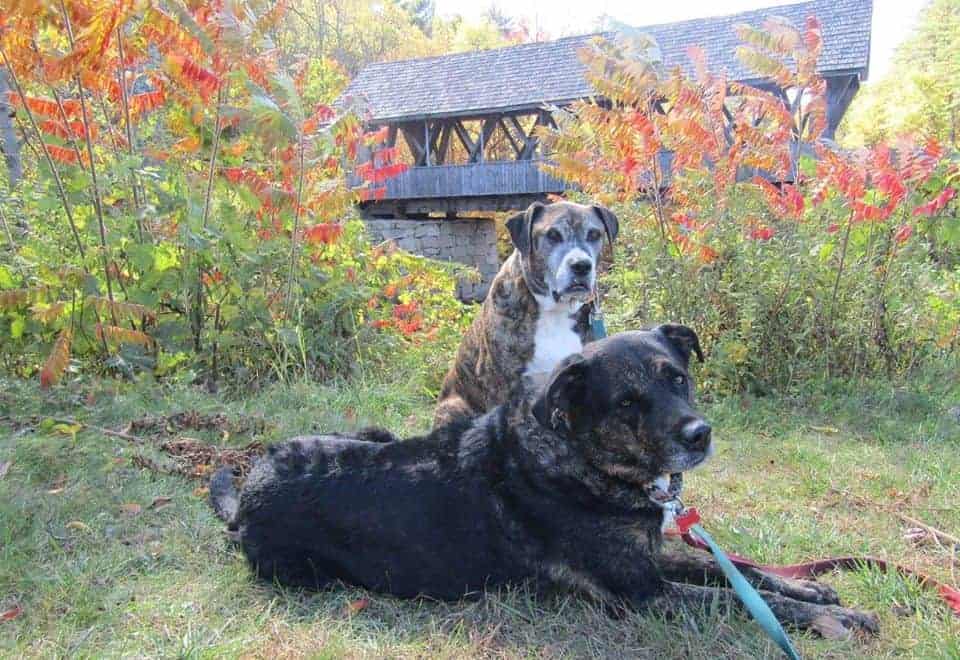Best weight loss dog foods
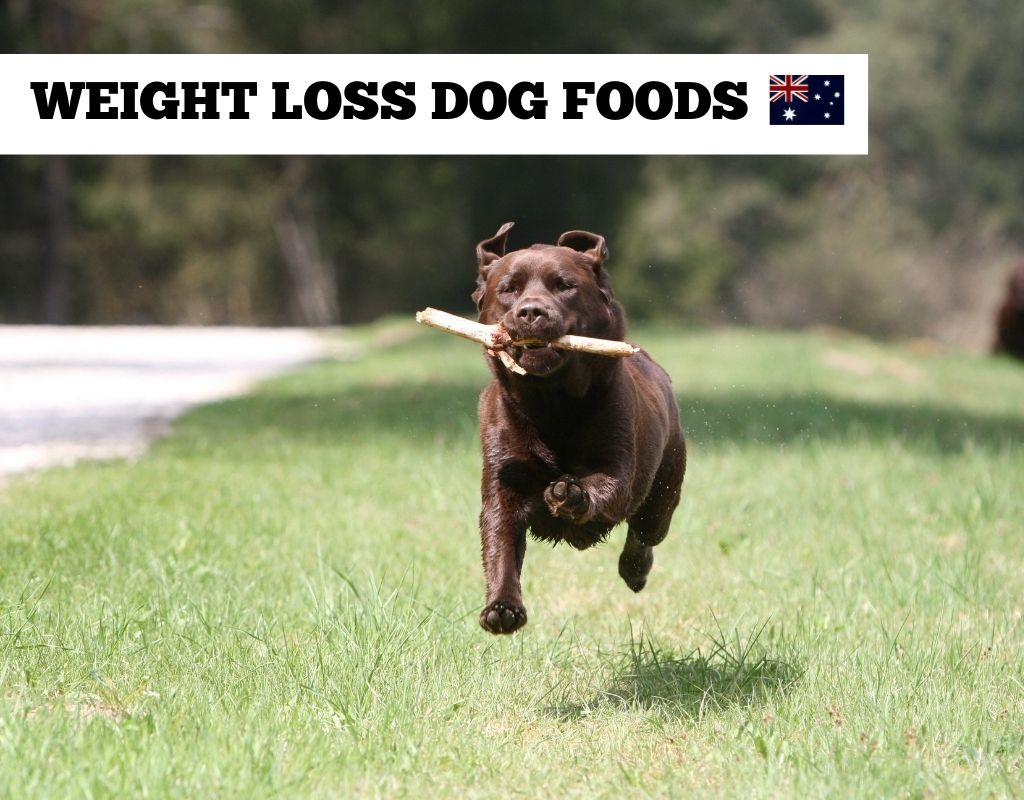
Did you know 41% of Aussie dogs are overweight or obese?
That’s based on Australian research data which suggests 33.7% of dogs are overweight, and 7.6% obese.
Because you’re here and reading this, I assume your dog is in one of those two categories.
Don’t worry, because you’re in the right place – not only will I recommend you a “weight loss dog food” which will truly help your dog, I’ll help you understand why your dog gained the weight in the first place.
My advice may contradict what you’ve been advised by your veterinarian, but I will give you simple and logical facts why that advice might not help your dog as effectively as it should.
Related: Weight Loss Myth – Why feeding your dog LESS is NOT the answer
Why did your dog really gain weight?
It’s been almost two decades since I started Pet Food Reviews, and in that time I’ve spoken to many people in the same position as you, with an overweight dog.
There are a few exceptions, but most of those dogs have one thing in common – the wrong diet.
Exercise would be the other factor, but I’ve spoken to many who are baffled why their dog is overweight despite two long stints a day running after a ball in the park.
I consider starchy carbohydrates the #1 issue why domestic dogs gain so much weight.
This coincides with the fact most brands of dog food are very high in carbohydrates, for the simple reason carbohydrate ingredients are much cheaper than the foods your dog should really be consuming – from animal sources.
Lets skirt over some science – carnivorous animals like cats really suffer from inappropriate diets of unnecessary carbohydrates because they have a short digestive tract. Animal matter can be digested quickly, and grain and plant matter can’t be digested effectively in a short digestive tract. Instead it takes a toll on the cat, and I expect is the real reason so many cats die before their years of renal failure.
In contrast, herbivores have long digestive tracts, which is why they benefit from plants and grains.
Here’s some facts:
- A cow has a digestive tract 20 times their body length.
- A cat has a digestive tract 4 times their body length.
- A human has a digestive tract 5-7 times their body length.
Based on the assumption your dog is an omnivore like us, you would think their digestive tract would be similar to that of our own, wouldn’t you?
If that’s the case, this may surprise you:
- A dog has a digestive tract 4-6 times their body length.
For these scientific reasons, it becomes easier to understand why so many Australian dogs are overweight when we feed them high-carbohydrate kibbles which lack protein and animal fats.
Still don’t believe me, ask yourself why we feed obligate true carnivore cats high-carbohydrate kibble diets when it makes absolutely no sense scientifically.
I realise this is only one example of why high-carbohydrate dog foods could be the reason your dog is overweight, but you’ll find more information here.
Recommended weight loss dog foods
Feeding your dog a brand of food with more protein (and/or more fat) with less carbohydrates is always a great start.
Most dog foods on the best rated list, and even those on the affordable dog food list should get you on the right track, but considering raw foods, BARF, or fresh food feeding is also a good idea (or a mixture of all the above?)
Below are a few recommendations to help your dog lose weight:
Vets All Natural Complete Mix Weight Loss
Vets All Natural Complete Mix is all the nutrients you need to feed your dog except the meat, which makes it a good option on two counts – (1) you can choose a variety of lean meats, and (2) if you buy those meats from the butcher or supermarket they’re likely better quality meats than what you find in pet food.
The bags tend to last longer than you might expect, and if you can find a reputable and affordable meat supplier then you’re onto a winner.
Prime100 SPD ZeroG Kangaroo, Lentil, and Turmeric Senior Adult & Weight Management
Prime100 is an Australian pet food brand most have heard of, and the rolls are very popular for good reason.
If you’re looking for a dry food for weight loss then Prime100 SPD ZeroG is a good option.
The Kangaroo, Lentil, and Turmeric Weight Management formula has kangaroo as the main ingredient, considered the best lean red meat.
The formula contains non-animal ingredients as well, including lentils, sweet potato, and peas, but when it comes to kibble these are better choices for your dog.
Related: Recommendations for kangaroo dog foods (any of which may help with weight loss!)
Vet recommended weight loss dog foods
The most common brands of weight loss dog foods recommended by vets are Hill’s Science Diet Perfect Weight or Royal Canin Veterinary Satiety Weight Management.
These formulas are high fibre to help your dog poop, and despite being lower calorie are still high in carbohydrates.
Here’s my opinion of both, but prepare to be surprised:
Royal Canin Veterinary Satiety Weight Management

You may question why the main ingredient in a dog food is vegetable fibres rather than meat, and it’s a very good question.
Dehydrated poultry protein may be included next, but then you’ll find wheat gluten, tapioca, maize gluten, plus further wheat and maize for good measure.
Are Mars trying to profit from your overweight dog with a dry kibble branded with the word “veterinary”, when you’re likely wondering if these ingredients are at all nutritious for your dog?
As a canine nutritionist, I see these as some of the worst ingredients to support the health and wellbeing of your dog, even if it leads to some weight loss in the short term.
Ingredients of Royal Canin Veterinary Satiety Weight Management:
Vegetable fibres, dehydrated poultry protein, wheat gluten*, tapioca, maize gluten, hydrolysed animal proteins, wheat, maize, animal fats, beet pulp, fish oil, minerals, fructo-oligo-saccharides, psyllium husks and seeds, soya oil, hydrolysed crustaceans (source of glucosamine), marigold extract (source of lutein), hydrolysed cartilage (source of chondroitin. ADDITIVES (per kg): Nutritional additives:Vitamin A: 20000 IU, Vitamin D3: 1000 IU, E1 (Iron): 35 mg, E2 (Iodine): 3.5 mg, E4 (Copper): 11 mg, E5 (Manganese): 46 mg, E6 (Zinc): 137 mg, E8 (Selenium): 0.06 mg – Preservatives – Antioxidants.
Hill’s Science Diet Perfect Weight

The offering from Hill’s may sound better as you skirt over the ingredients, and at least it starts with chicken as an ingredient more beneficial to your dog.
But then you find cracked pearled barley, brown rice, pea fiber, and corn gluten meal.
Are they optimal ingredients to truly help your dog return to and maintain an ideal weight?
It has to be said Hill’s Science Diet Perfect Weight comes across a little better than Royal Canin Veterinary Satiety Weight Management, but they’re both high in carbohydrates which you should consider less than ideal for your dog.
Ingredients of Hill’s Science Diet Perfect Weight Adult:
Chicken, Cracked Pearled Barley, Brown Rice, Pea Fiber, Corn Gluten Meal, Chicken Meal, Dried Tomato Pomace, Oat Fiber, Chicken Liver Flavor, Flaxseed, Dried Beet Pulp, Coconut Oil, Pork Flavor, Lactic Acid, Potassium Chloride, L-Lysine, DL?Methionine, Carrots, Iodized Salt, Lipoic Acid, vitamins (Vitamin E Supplement, L?Ascorbyl?2?Polyphosphate (source of Vitamin C), Niacin Supplement, Thiamine Mononitrate, Vitamin A Supplement, Calcium Pantothenate, Riboflavin Supplement, Biotin, Vitamin B12 Supplement, Pyridoxine Hydrochloride, Folic Acid, Vitamin D3 Supplement), Choline Chloride, minerals (Manganese Sulfate, Ferrous Sulfate, Zinc Oxide, Copper Sulfate, Calcium Iodate, Sodium Selenite), Taurine, Mixed Tocopherols for freshness, Natural Flavors, LCarnitine, Beta?Carotene, Apples, Broccoli, Cranberries, Green Peas.
What are weight loss dog foods, really?
Below are marketing statements taken from a number of weight loss dog foods. You may be surprised to learn some may be red herrings when it comes to canine nutrition.
- Lower calories – The word “calories” is often used when we talk about sucky diets in a bid to lose weight.
- High fibre – Something we used to read on most cereal packets. Fibre helps us feel full and regulate bowels.
- Reduced fat content – It’s easy to believe eating fat leads to being fat, but we also know there are different fats and nutritional benefits of healthy fats.
- More protein – Protein can help a dog feel full or satiated. It’s the same for us – if you eat a lot of protein at breakfast, such as eggs, then have you realised you won’t get mid-morning biscuit cravings?
- Added supplements – Some weight loss dog foods contain supplements to help weight loss (such as L-carnitine), and these claims look great on the packaging of a weight loss dog food.
If you know anything about weight loss you’ll see a great deal of truth in the above, but when it comes to your dog how are these translated into an effective weight loss dog food?
Let’s consider some of the consequences of the above in terms of dog food formulas. These claims may sound great in terms of marketing, but what can be the reality behind them?
- Reduced fat
 – A dog food is comprised of protein, fat, carbohydrates, moisture, and ash. When you reduce fat content it means one of those other macronutrients will be more significant – but which one? Usually in dog food a reduction in either protein or fat will mean more carbohydrates, or for the sake of simplicity let’s say starchy “fillers”. Most of the time these carbohydrate ingredients aren’t natural for your dog to eat, and may even increase weight gain. You’ll likely put it down to your dog’s metabolism, believing even weight loss dog food hasn’t worked.
– A dog food is comprised of protein, fat, carbohydrates, moisture, and ash. When you reduce fat content it means one of those other macronutrients will be more significant – but which one? Usually in dog food a reduction in either protein or fat will mean more carbohydrates, or for the sake of simplicity let’s say starchy “fillers”. Most of the time these carbohydrate ingredients aren’t natural for your dog to eat, and may even increase weight gain. You’ll likely put it down to your dog’s metabolism, believing even weight loss dog food hasn’t worked. - More protein
 – It’s easy to understand the importance of protein as an essential macronutrient for health and retaining pristine muscle mass. Weight lifters of the world will unite in their love of protein powders. When it comes to dog foods, however, the type of protein matters – is it lean meat proteins from kangaroo, turkey, chicken, or fish, or kibblefied peas? More protein in a weight loss dog food will often coincide with less animal fats, but still be an excess of carbohydrates. It’s carbohydrates which turn to fats if your dog isn’t overly active.
– It’s easy to understand the importance of protein as an essential macronutrient for health and retaining pristine muscle mass. Weight lifters of the world will unite in their love of protein powders. When it comes to dog foods, however, the type of protein matters – is it lean meat proteins from kangaroo, turkey, chicken, or fish, or kibblefied peas? More protein in a weight loss dog food will often coincide with less animal fats, but still be an excess of carbohydrates. It’s carbohydrates which turn to fats if your dog isn’t overly active. - Added supplements
 – Supplements, like most minor inclusions in a dog food, offer the manufacturer excellent claims to add to the packaging. L-Carnitine is a well known fat-burner, but would you personally take such a supplement alongside a diet of burgers and French fries? It’s easy for us to get sucked in by such claims, but unless the main ingredients in a weight loss dog food work in collaboration, your dog will likely remain overweight.
– Supplements, like most minor inclusions in a dog food, offer the manufacturer excellent claims to add to the packaging. L-Carnitine is a well known fat-burner, but would you personally take such a supplement alongside a diet of burgers and French fries? It’s easy for us to get sucked in by such claims, but unless the main ingredients in a weight loss dog food work in collaboration, your dog will likely remain overweight.
As well as the above, keep in mind this following point:
Fat may not be the reason your dog is fat. Your dog will digest animal fats very effectively, as a great source of energy, healthy skin and coat, and will also help them better absorb nutrients.David D’Angelo, Pet Nutritionist (Australia).
Pet foods can contain expensive ingredients (such as meat and meat fats), or cheaper ingredients (such as starches and legumes). If a pet food manufacturer can reduce expensive ingredients AND market the dog food for a specific health condition, then they’ll do just that. After all, they can charge a premium price for a dog food with cheaper ingredients. It’s a win-win (for them at least!)
Other weight loss dog foods
Below I will summarise other popular weight loss dog foods available in Australia, with key points to consider:
- Hill’s Prescription Diet Weight Loss r/d – Mentioned earlier, this expensive vet-endorsed weight loss dog food has questionable ingredients for an animal I consider a meat-eater.
- Royal Canin Veterinary Diet Satiety Support – Also mentioned earlier, this is the other weight loss option commonly recommended by veterinarians, also with ingredients which you may find odd for a canine.
- Ivory Coat Reduced Fat – I really wish I could recommended this brand. I used to based on the ingredients, but consumer feedback is often concerning – this suggests Ivory Coat isn’t as good quality as we would hope.
- Advance Weight Control All Breed – The main ingredients are rice, chicken meal, and sorghum in that order, which means there is more rice than chicken, and likely chicken will be less than one third of that mix. Beneficial inclusions are green lipped mussels and l-carnitine, but is it worth it? Advance is the cheaper offering to Royal Canin, both being Mars Petcare products.
- Eukanuba Adult Fit Body Weight Control – One step down from Advance above, Eukanuba is yet another Mars Petcare brand catering for a tighter budget. For this weight loss dog food we find the main ingredient as maize, and although poultry protein is listed 2nd, it’s also stacked with wheat, barley, and more maize (flour).
- Nutro Lite and Weight Management – Mars Petcare yet again, controlling the market, the Lamb & Rice Weight Management formula is more rice and then lamb when you look at the ingredients. The real question is how much more rice than meat?
- Pro Plan Adult Weight Management – This is one of those “meat first” formulas, which are great at making you believe this dog food is mostly meat. Consider this a trick, as the next four ingredients are brewers rice, whole grain wheat, oats, and barley, which means you’ll be feeding your overweight carnivorous pet a stack of grains – possibly the reason they became overweight in the first place. Oh, and yes, I didn’t mention Mars Petcare for this one. Pro Plan is a Nestle brand.
- Supercoat Healthy Weight – Another Nestle brand, Supercoat is a big hit with Australian dog owners who believe other dog foods are expensive. You may find Supercoat affordable, but it makes more sense when you realise how much of this product, labelled “healthy”, is cereal and plant by-products, wheat, and corn and/or sorghum and/or barley. Supercoat or Supercheap ingredients?
- Pedigree Healthy Weight – We’re back to Mars Petcare products once again. Pedigree is a household name and has been since my childhood many decades ago. I wouldn’t recommend a dog food with a main ingredient of wholegrain cereals for any dog, even less so an overweight dog.
What weight loss dog food do you feed or recommend?
Common questions related to weight loss dog foods
Every dog and situation is different, so you may have all manner of questions on how to effectively help them lose weight. Diet is only one part of the question.
Hopefully all other questions you may have are covered below. If not, add a comment below and I’ll do my best to offer genuine advice.
How much weight should a dog lose a day?
This is relative to how overweight they are, but a good rule of thumb is 1-2% of their body weight per week. Let’s say your overweight Labrador weighs 45kg. That would mean losing 450g to 900g in a week can be considered safe.
What meats will help a dog lose weight?
Weight loss dog foods favour lean meats, particularly turkey, chicken, or fish. In Australia, kangaroo can be considered an excellent lean red meat, and a good choice for weight loss. When choosing a commercial dog food for weight loss make sure meat is a main ingredient. Ideally the guaranteed analysis will have high protein (30%+) and moderate fat (10%~18%) – this will suggest lower carbohydrates.
Will a hypoallergenic or limited ingredient dog food help with weight loss?
A hypoallergenic or limited ingredient dog food may help your dog lose weight. The important consideration here is your dog’s previous diet, and whether it contained inappropriate ingredients which led to weight gain. If this is the case, a hypoallergenic or limited ingredient dog food would likely have better ingredients, without the common ingredients associated with weight gain in dogs.
Should you be concerned about fat content in a dog food?
Generally a dog will gain weight due to lack of exercise, age, or an inappropriate diet. Given dogs effectively digest animal fats, you should consider carbohydrate or starch ingredients more a concern as these are less natural for a dog to consume in their diet. Opt for a food which is lower in carbohydrates rather than lower in fat.
What treats can you give a dog who needs to lose weight?
High protein meat-based treats should be fine to feed an overweight dog. A good quality meat-based treat will offer them nutrition as well as work well coinciding with a weight loss diet. Avoid treats made from grains or starches, especially those containing sugars and other additives.
Do green beans help a dog lose weight?
The fibre in green beans should help your dog feel full, which is why many people feed this legume as part of a weight loss diet. They are also a source of vitamins and minerals, including protein, iron, calcium, and vitamins A, B6, C, and K.
How can you combine dry dog food with other foods to help a dog lose weight?
Dogs are generally fed one brand of dog food, but that doesn’t mean this is the best option for a dog. Variety can be an effective method of broadening nutrition and often keeping costs down. To help your dog lose weight you can feed their regular dog food in the morning, and a combination of foods in the evening. This can be a mix of some of their regular food, green beans, fresh lean meat, or an egg.
Why is low carb dog food better for weight loss?
It’s a common misconception the fat content in a dog’s diet will lead to weight gain. Although excessive fat in the diet can be problematic, a real concern is high carbohydrates. The nature of dry dog foods as a consumer product has led to reduced protein, reduced fat, and higher carbohydrate ingredients. These are often less natural for a dog to eat. Grains (particularly wheat, cereal, or grain by-products), or excessive starch ingredients (such as potato) can mean your dog is consuming a far higher percentage of carbohydrates than you may think. An active dog may burn off enough carbohydrates to retain a normal build, which is why many working dog foods opt for these cheaper ingredients, but a less active dog can gain weight.
Is grain free dog food better for weight loss?
The reason grain free dog foods can be better for weight loss is because on average they contain better ingredients than grain-based dog foods. The cost of grain free dog foods is also, on average, more per kilo. However, the real question is regarding meat and fat content, as it is possible for either a good grain-based dog food or a grain free dog food to have a suitable meat and animal fat content.
Is canned or wet food better for weight loss?
It depends on the quality of the brand, but you will often find the wet equivalent of a dry dog food to contain better ingredients. Kibble is often far less expensive than wet or canned foods, which often means the ingredients aren’t as good.
What do you feed a dog to support joints and help with weight loss?
Choosing a high quality dog food will often help your dog retain a healthy weight as well as support their joints. A decent dog food should have a focus on quality meat and animal fat ingredients, with less carbohydrates, and contain omega fatty acids or healthy oils to support joints. Another option which will particularly help (even if you are on a budget) is to supplement your dog’s diet with green lipped mussels, whole sardines, or supplements including glucosamine and chondroitin, cartilage, or abalone.
What's Your Reaction?
 Like
0
Like
0
 Dislike
0
Dislike
0
 Love
0
Love
0
 Funny
0
Funny
0
 Angry
0
Angry
0
 Sad
0
Sad
0
 Wow
0
Wow
0


